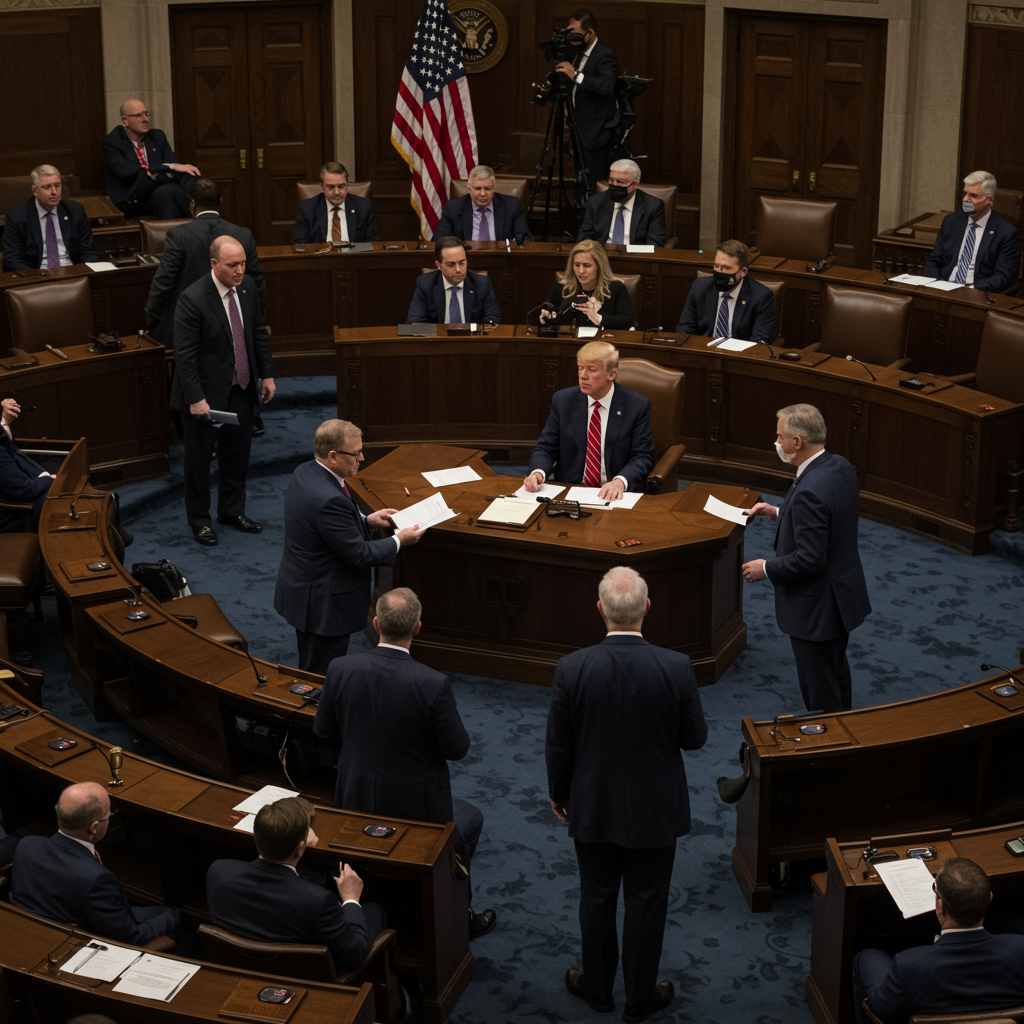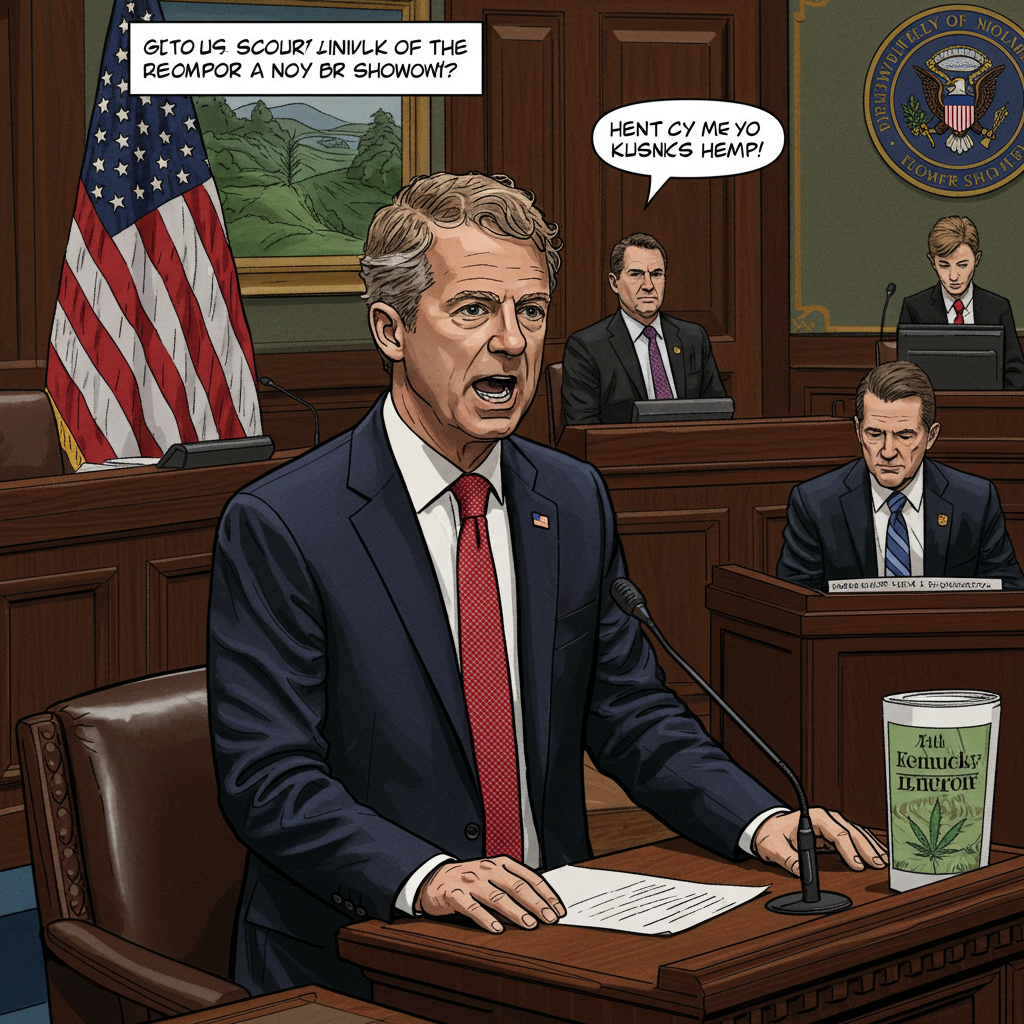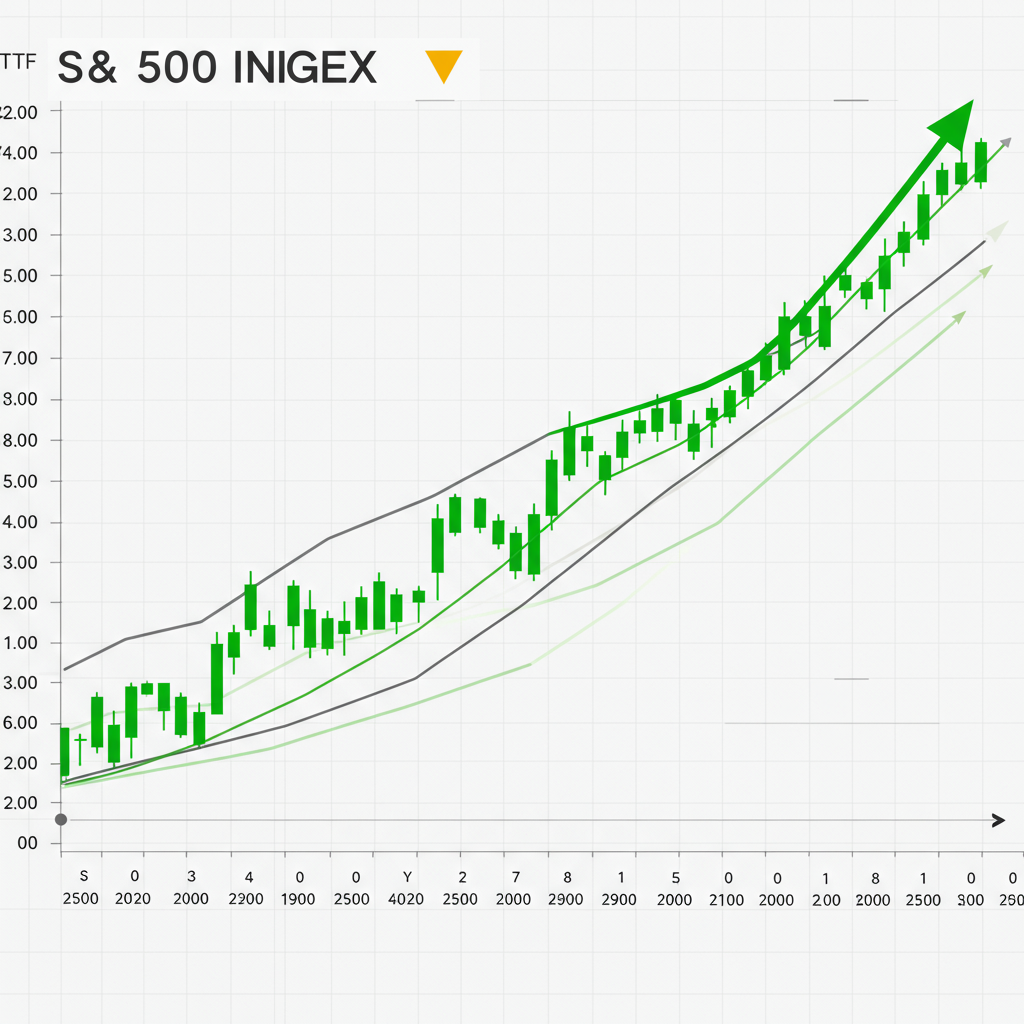The U.S. senate stands on the precipice of a pivotal decision, locked in an intense legislative debate surrounding president Donald trump’s comprehensive domestic policy bill. A marathon voting session, often termed a “vote-a-rama,” is currently underway. Senators are proposing numerous changes and amendments before the chamber ultimately moves towards a final vote on the sweeping package. This crucial Senate vote approaches on Trump’s sweeping domestic bill, holding significant implications for national policy and the political landscape in Washington D.C.
President Trump has reportedly set an ambitious target, pressuring his Republican party to pass this significant tax cuts and spending package quickly. His aim is to be able to sign the legislation into law by the upcoming Fourth of July deadline. Should the bill successfully navigate the Senate, it will still need to pass through the House of Representatives before it can reach the President’s desk for signature. The debate on the Senate floor has already stretched late into the night as lawmakers grapple with the bill’s far-reaching provisions.
Unpacking Trump’s “Big, Beautiful Bill” on the Senate Floor
The legislative process currently unfolding in the Senate is a critical stage for President Trump’s priority agenda. Termed a “vote-a-rama,” this session involves lawmakers offering countless amendments to the proposed legislation. It’s a chaotic but necessary step in the Senate’s procedure, allowing senators from both parties to propose changes before the final up-or-down vote on the bill itself.
Senate Minority Leader Chuck Schumer reportedly exercised a procedural right early in the process, forcing a full reading of the extensive bill text. This action, while adding several hours to the proceedings, highlights the deep scrutiny and contention surrounding the legislation. Following the initial debate period, the Senate is expected to enter a period allowing for unlimited amendments, potentially prolonging the “vote-a-rama” for hours.
What’s Inside the Sweeping Package? (Key Provisions)
President Trump’s “Big Beautiful Bill” is designed as a comprehensive overhaul touching on various aspects of the American economy and government spending. At its core, the package seeks to make permanent the significant tax cuts enacted in 2017. This includes locking in lower rates for both individuals and corporations, a move proponents argue will stimulate economic growth but critics warn will exacerbate the national debt.
Simultaneously, the bill proposes substantial reductions in funding for key federal safety net programs. Areas targeted for cuts reportedly include Medicaid and vital nutrition assistance programs. Critics argue these changes could disproportionately impact low-income families and the elderly, potentially leading to millions losing essential support.
Conversely, the legislation commits significant new spending towards priorities aligned with Trump’s second-term promises. This includes substantial investments in military modernization and enhanced border enforcement measures. The Senate version of the bill reportedly included specific provisions to direct funds towards rural hospitals, particularly those reliant on Medicaid funding, in an apparent effort to gain support from potentially hesitant Republican senators.
The Republican Divide: Tillis and Musk Voice Opposition
Despite being championed by a Republican president, the bill has exposed rifts within the Republican party itself. A key moment of dissent came during a procedural vote on Saturday night. Senator Thom Tillis of North Carolina was one of only two Republican senators who voted against advancing the bill, joining all Democratic senators. This opposition was significant given the bill’s importance to the President.
Senator Thom Tillis’s Stance
Senator Tillis voiced specific concerns regarding the bill’s proposed cuts to Medicaid. He cited analysis from the non-partisan Congressional Budget Office (CBO), which estimated that these cuts could result in approximately 12 million additional people becoming uninsured. Hours after casting his dissenting vote and reportedly facing public criticism from President Trump, who even threatened support for potential primary challengers, Senator Tillis announced he would not seek re-election next year. His decision opens up a potentially competitive Senate seat in a critical battleground state, adding another layer of political drama to the bill’s trajectory.
Elon Musk Enters the Fray
Adding a unique and high-profile voice to the opposition, tech billionaire Elon Musk has also launched scathing critiques against the proposed legislation. Describing the bill as “utterly insane and destructive,” Musk has argued it would lead to the destruction of millions of jobs and inflict immense strategic harm on the country. This isn’t the first time Musk has clashed with Trump over the bill; he previously labeled it a “disgusting abomination” that would “bankrupt the nation.”
Musk’s criticism appears rooted in a techno-libertarian perspective. He argues that coupling massive tax reductions with increased military spending will “explode the deficit” and undermine economic stability. Furthermore, he contends that cuts to social programs like Medicaid undermine America’s “human capital” and that the legislation hinders the country’s global competitiveness, particularly against rivals like China. This public feud highlights a deeper ideological tension within American conservatism, contrasting Trump’s populist nationalism with Musk’s focus on deregulation, innovation, and fiscal restraint.
The Political Stakes and the July 4th Deadline
The push to pass the bill by the Fourth of July is a significant political deadline for President Trump. Securing a legislative victory of this magnitude before a major national holiday would be a substantial achievement to highlight. However, the tight timeline and the bill’s contentious nature make this deadline challenging.
Even if the bill passes the Senate, its future remains uncertain as it heads to the House. The internal divisions seen in the Senate vote suggest that rounding up enough votes in the House could also be difficult. The potential impacts of the tax cuts, spending increases, and safety net reductions are being intensely debated, fueling political conflict on Capitol Hill. The outspoken opposition from figures like Senator Tillis and Elon Musk adds pressure to Republican leaders trying to maintain party unity.
What Happens Next? The Road to a Final Vote
The immediate focus remains on the ongoing “vote-a-rama” and the extensive debate period in the Senate. Senators will continue proposing and voting on amendments, a process that could span many hours. Once the amendment process concludes, the Senate will move towards a final vote on the overall bill as amended. The outcome of this final vote is not guaranteed, especially given the narrow margin seen in the initial procedural vote (51-49).
The debate is expected to be fierce, with Democrats likely highlighting concerns about the social program cuts and fiscal impact, while Republicans will emphasize the tax cuts and spending priorities. The actions of senators like Thom Tillis and the public comments from figures like Elon Musk signal the diverse pressures and viewpoints influencing this critical legislative moment.
Frequently Asked Questions
What are the key provisions included in Trump’s domestic policy bill?
President Trump’s comprehensive bill proposes making the 2017 individual and corporate tax cuts permanent. It also includes significant new spending for military modernization and border enforcement. Simultaneously, the package proposes deep funding cuts to federal safety net programs like Medicaid and nutrition assistance. A Senate addition reportedly directs funds to rural hospitals.
Why did Senator Thom Tillis vote against the bill, and what was the outcome?
Senator Thom Tillis, a Republican, opposed the bill primarily due to concerns over proposed Medicaid cuts. He cited a CBO analysis suggesting these cuts could leave 12 million more people uninsured. Following his dissenting vote and related political pressure, Senator Tillis announced he would not be seeking re-election, adding a significant political dimension to his opposition.
What specific concerns has Elon Musk raised about Trump’s bill?
Elon Musk has strongly criticized the bill, calling it “utterly insane and destructive.” His concerns include potential job losses and strategic harm to the country. From a fiscal perspective, he argues that combining tax cuts with increased military spending will “explode the deficit.” He also feels the social program cuts harm “human capital” and believes the bill damages America’s global competitiveness.
Conclusion
The U.S. Senate is navigating a complex and contentious path towards a potential vote on President Trump’s major domestic policy bill. The “vote-a-rama” process, marked by extensive debate and amendments, underscores the high stakes involved. With provisions affecting everything from tax rates and federal spending to critical safety net programs, the bill’s passage or failure will have widespread consequences. The visible divisions within the Republican party, highlighted by Senator Thom Tillis’s vote and Elon Musk’s sharp critiques, reveal the deep disagreements surrounding the legislation’s economic philosophy and societal impact. As the Fourth of July deadline approaches, all eyes remain on the Senate floor to see if the bill can gather the necessary support to advance.



